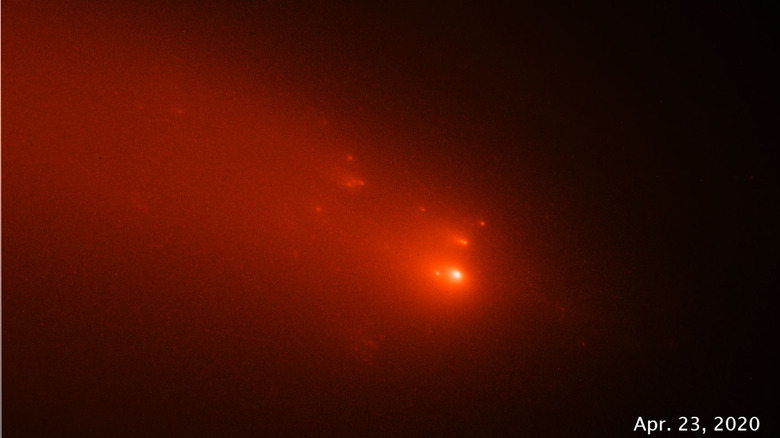Comet Atlas May Have Passed Through Our Solar System Before
Astronomers first noticed a comet called Atlas (C/2019 Y4) at the beginning of 2020. It was first detected by the Asteroid Terrestrial-impact Last Alert System (ATLAS) operated by the University of Hawaii. The asteroid was detected in mid-2020 as the main comet disintegrated into smaller pieces of ice.
A new study investigated comet Atlas using observations from the NASA Hubble Space Telescope. The study found Atlas was a piece of an ancient comet that visited the inner solar system 5000 years ago. Atlas followed the same orbital path as a comet that was seen in 1844, but it's not the same comet.
Following the same orbital path, astronomers were able to determine Atlas and the comet seen in 1844 probably originated from the same parent comet that broke up many centuries earlier. There was something strange about Atlas in that it broke up much further away from the sun than the parent comet would've passed thousands of years ago.
Astronomers wondered if Atlas broke up so far away from the sun, how did the parent comet survive a very close approach to the sun in the past. Astronomers believe the parent comet passed within 23 million miles of the sun 5000 years ago. That would put it closer to the sun than Mercury, and it would've been visible to civilizations scattered across the Earth at the end of the Stone Age.
Observing the fragments of Atlas helps astronomers to learn more about its parent's construction. After an in-depth analysis, astronomers determined that one Atlas fragment disintegrated in days while another large piece survived for weeks. The team says that shows part of the comet's nucleus was stronger than the rest of the comet.

Astronomers believe one possibility is that ejected material could have spun Atlas so fast that centrifugal forces tore the comet apart. Another possibility for its early demise is a phenomenon known as super-volatile ices that exploded just below the surface, ripping the comet apart. NASA notes that the surviving sibling of Atlas won't return to our solar system until the 50th century.
